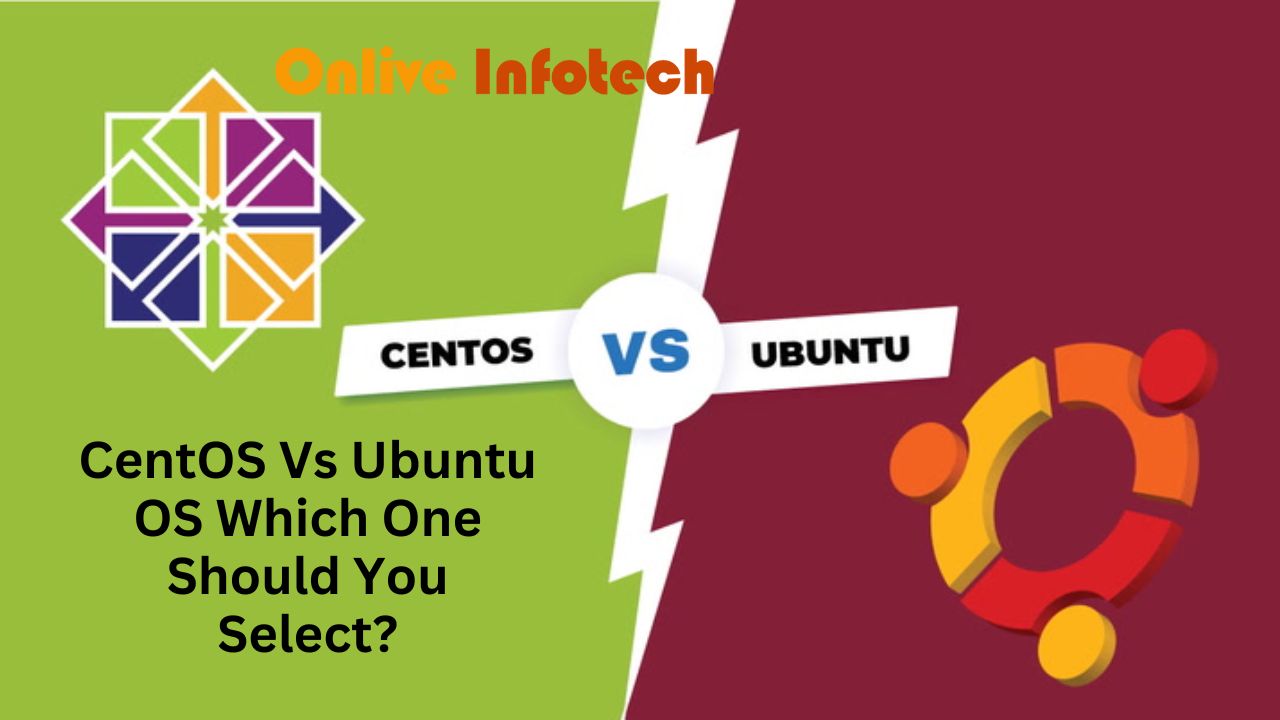
Which One is best, CentOS or Ubuntu?
The answer to this question depends on your specific requirements and preferences. CentOS is known for its stability, security, and support for enterprise applications, making it a popular choice for servers and enterprise environments. On the other hand, Ubuntu is designed to be user-friendly and easy to use, with a larger selection of software packages and strong community support. Ultimately, the choice between CentOS and Ubuntu will depend on your specific use case, preferences, and requirements.
What is CentOS?
CentOS is a Linux distribution that is based on the open-source code for Red Hat Enterprise Linux (RHEL). It is a community-driven project that aims to provide a stable and secure operating system that is suitable for enterprise applications and servers.
CentOS is known for its stability and reliability, making it a popular choice for businesses and organizations that require a dependable operating system. It is also known for its security features, with frequent updates and security patches to help protect against vulnerabilities and threats.
CentOS is free to download and use, which makes it a cost-effective choice for businesses and organizations that need to manage multiple servers or applications. It offers long-term support for each major release, which means that users can receive security updates and patches for several years after the release.
Overall, CentOS is a robust and reliable Linux distribution that is suitable for enterprise applications and servers. Its focus on stability, security, and long-term support has made it a popular choice for businesses and organizations that require a dependable operating system.
What is Ubuntu?
Ubuntu is a popular Linux distribution that is based on the Debian architecture. It is a free and open-source operating system that is known for its user-friendliness, stability, and security.
Ubuntu is designed to be easy to use, with a graphical user interface and a range of pre-installed software packages, including web browsers, office applications, and multimedia tools. It also has a large software repository, which makes it easy to install and use a wide range of additional software applications.
Ubuntu is available in several different editions, including desktop, server, and cloud versions. It is also highly customizable, with a range of desktop environments and themes to choose from.
Ubuntu known for its strong focus on security, with frequent updates and security patches to help protect against vulnerabilities and threats. It also offers long-term support for each major release, which means that users can receive security updates and patches for several years after the release.
Overall, Ubuntu is a popular and user-friendly Linux distribution that is suitable for desktop users, developers, and businesses. Its focus on user-friendliness, stability, security, and long-term support has made it a popular choice for a wide range of users.
Difference Between CentOS vs Ubuntu
CentOS and Ubuntu are both popular Linux distributions, but there are some key differences between them:
1. Origin: CentOS is based on the open-source code for Red Hat Enterprise Linux, while Ubuntu is based on Debian.
2. Stability: CentOS is known for its stability and support for enterprise applications, while Ubuntu is designed to be user-friendly and easy to use.
3. Security: Both CentOS and Ubuntu have strong security features, but CentOS is often considered to be more secure due to its focus on stability and security.
4. Software availability: Ubuntu has a larger selection of software packages available in its repositories, while CentOS focuses more on stability and may not have the latest software packages.
5. Community support: Both CentOS and Ubuntu have large and active communities that provide support, but Ubuntu is known for its strong community support and user-friendly documentation.
6. Default desktop environment: CentOS does not have a default desktop environment, while Ubuntu uses the GNOME desktop environment by default.
7. Virtualization: CentOS often preferred for enterprise virtualization due to its stability and security features, while Ubuntu is also suitable for virtualization.
Overall, the choice between CentOS and Ubuntu will depend on your specific needs and preferences, and what you are looking for in a Linux distribution.
Which One most Choose Developer in Ubuntu and CentOS?
The choice between Ubuntu and CentOS depends on the specific needs and preferences of the developer. Both operating systems are popular choices for developers, but they have some key differences.
Ubuntu known for its ease of use, strong community support, and focus on desktop use. It has a large selection of software packages available in its repositories, which makes it easy to install and use a wide range of development tools, frameworks, and libraries. Ubuntu also has a large and active community of developers who provide support and resources for users.
CentOS, on the other hand, known for its stability, reliability, and security. It is a community-driven project that aims to provide a stable and secure operating system that is suitable for enterprise applications and servers. CentOS has a reputation for being a dependable choice for businesses and organizations that require a reliable and secure operating system.
In summary, developers who prioritize ease of use, a large selection of software packages, and a strong community may prefer Ubuntu. Developers who prioritize stability, reliability, and security, particularly for enterprise applications and servers, may prefer CentOS.
Read More: What are DDoS Attacks? How to Prevent DDoS Attacks?
